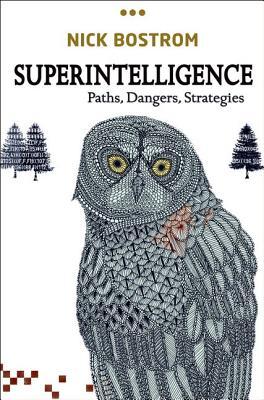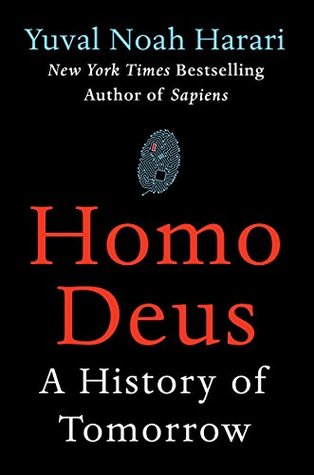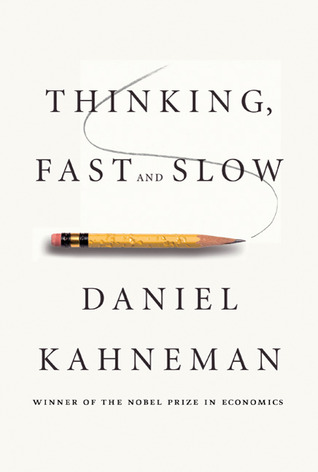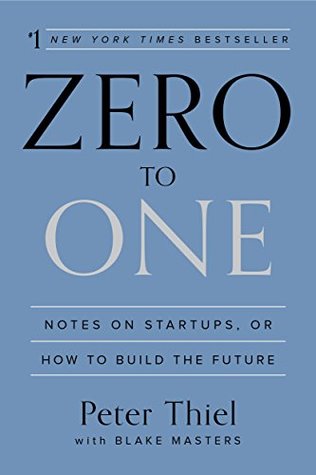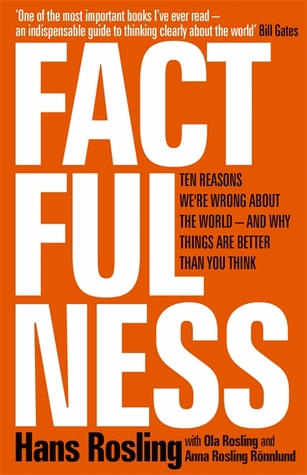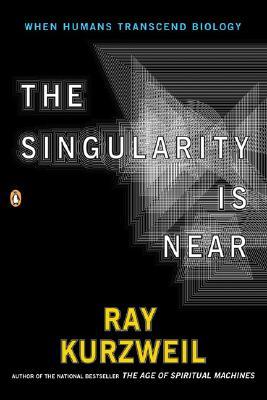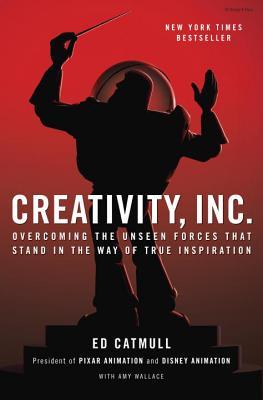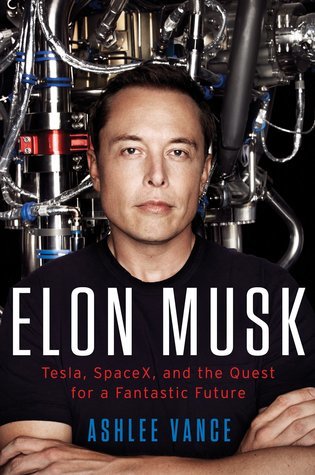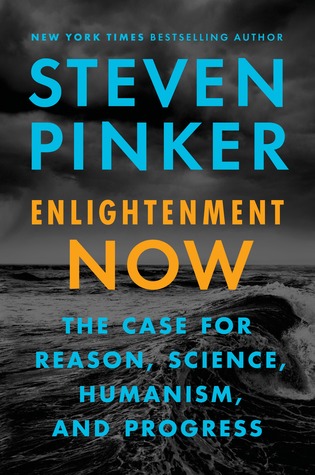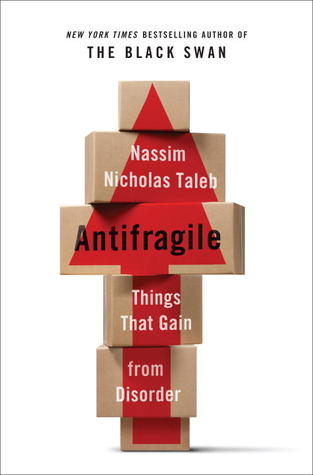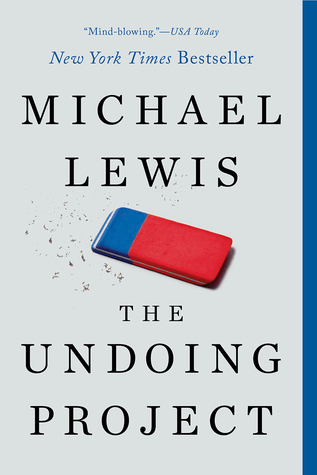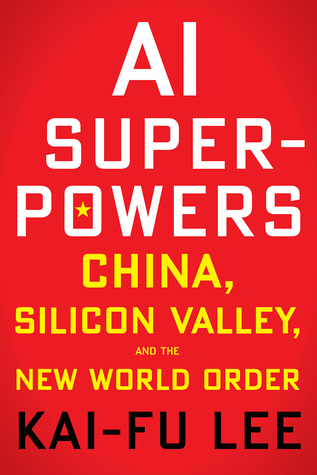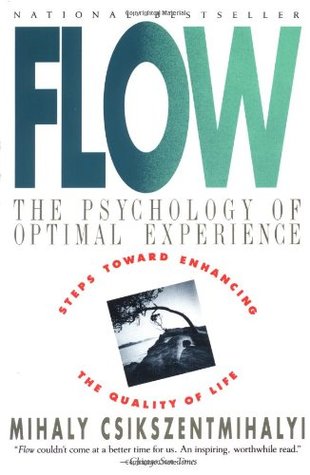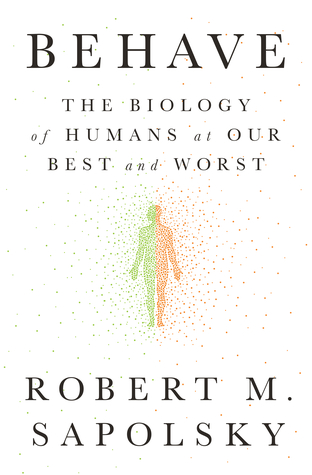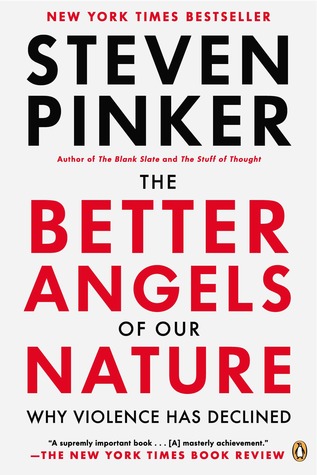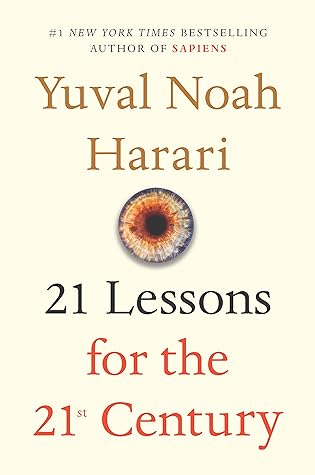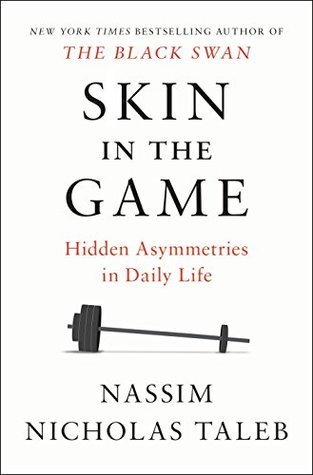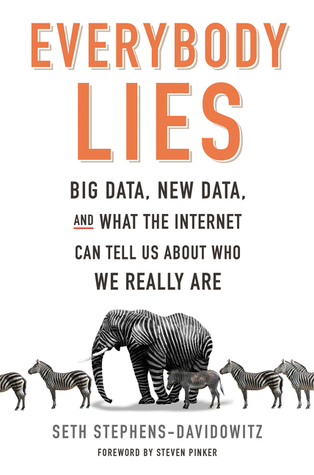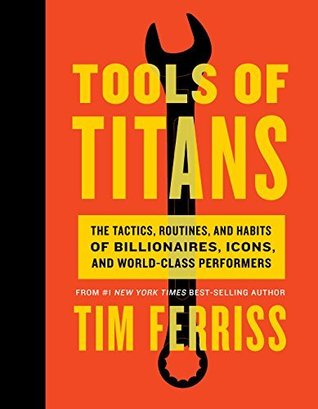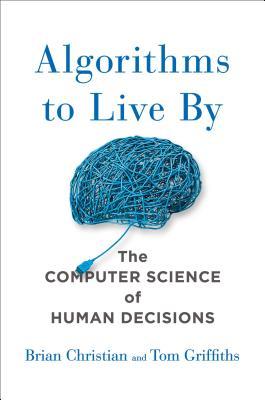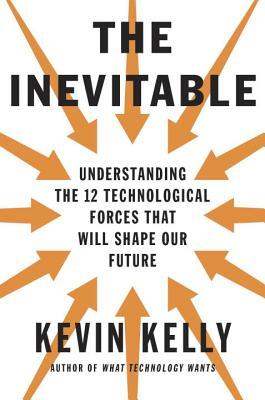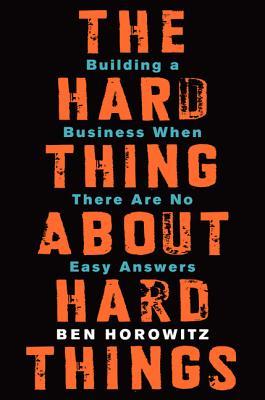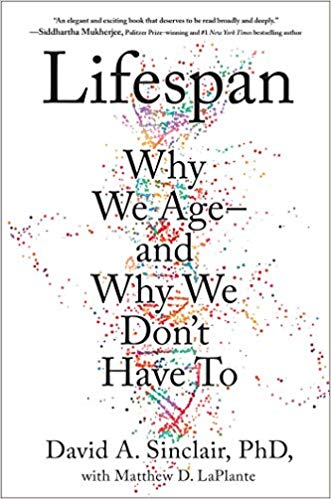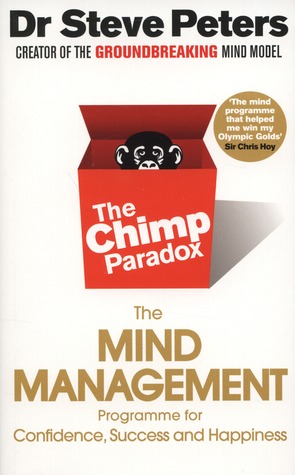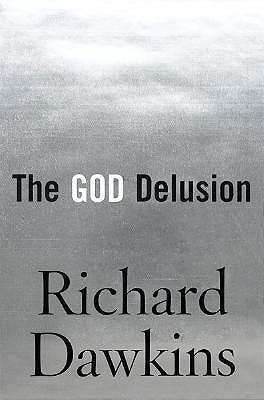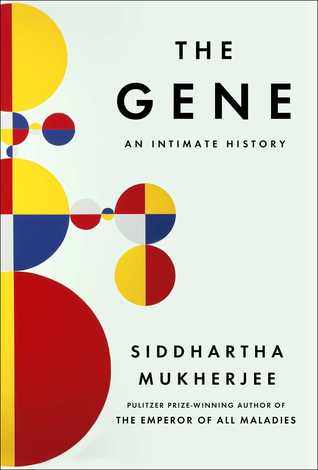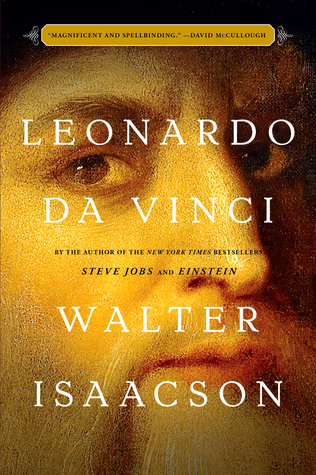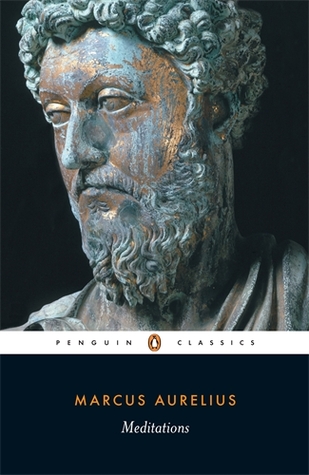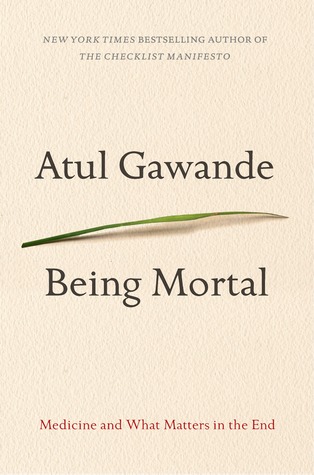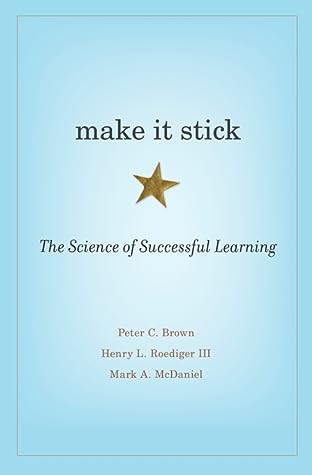Powered by a book like {foo}
Recommendations based on Life 3.0: Being Human in the Age of Artificial Intelligenceby Max Tegmark
* statistically, based on millions of data-points provided by fellow humans
Superintelligence: Paths, Dangers, Strategies
by Nick Bostrom
A philosophical exploration of the implications of artificial intelligence on humanity.
Superintelligence asks the questions: what happens when machines surpass humans in general intelligence? Will artificial agents save or destroy us? Nick Bostrom lays the foundation for understanding ... (Goodreads)
Homo Deus: A History of Tomorrow
by Yuval Noah Harari
An exploration of humanity's future, and the potential paths of our species.
Yuval Noah Harari, author of the critically-acclaimed, New York Times, bestseller and international phenomenon, Sapiens, returns with an equally original, compelling, and provocative book, turning ... (Goodreads)
Thinking, Fast and Slow
by Daniel Kahneman
An exploration of the two systems of the mind, and how they influence decision-making.
In the highly anticipated Thinking, Fast and Slow , Kahneman takes us on a groundbreaking tour of the mind and explains the two systems that drive the way we think. System 1 is fast, intuitive, and ... (Goodreads)
Zero to One: Notes on Startups, or How to Build the Future
by Peter Thiel
A guide to launching a startup, exploring the power of entrepreneurship.
If you want to build a better future, you must believe in secrets. The great secret of our time is that there are still uncharted frontiers to explore and new inventions to create. In Zero to One, ... (Goodreads)
Factfulness: Ten Reasons We're Wrong About the World – and Why Things Are Better Than You Think
by Hans Rosling
A data-driven book that challenges common misconceptions about the world and presents a more accurate, optimistic view of global progress.
Factfulness:, The stress-reducing habit of only carrying opinions for which you have strong supporting facts. When asked simple questions about global trends— what percentage of the world’s ... (Goodreads)
The Singularity is Near: When Humans Transcend Biology
by Ray Kurzweil
A futurist's prediction of a technological singularity where humans merge with machines, leading to a new era of evolution.
For over three decades, Ray Kurzweil has been one of the most respected and provocative advocates of the role of technology in our future. In his classic The Age of Spiritual Machines , he argued ... (Goodreads)
Creativity, Inc.: Overcoming the Unseen Forces That Stand in the Way of True Inspiration
by Ed Catmull
An exploration of the principles and strategies that drive success in the creative process.
“What does it mean to manage well?” From Ed Catmull, co-founder (with Steve Jobs and John Lasseter) of Pixar Animation Studios, comes an incisive book about creativity in business—sure to appeal to ... (Goodreads)
Elon Musk: Tesla, SpaceX, and the Quest for a Fantastic Future
by Ashlee Vance
A revealing look into the life and accomplishments of tech innovator Elon Musk.
Elon Musk, the entrepreneur and innovator behind SpaceX, Tesla, and SolarCity, sold one of his internet companies, PayPal, for $1.5 billion. Ashlee Vance captures the full spectacle and arc of the ... (Goodreads)
Enlightenment Now: The Case for Reason, Science, Humanism, and Progress
by Steven Pinker
A data-driven argument for the progress of humanity through reason, science, and humanism.
If you think the world is coming to an end, think again: people are living longer, healthier, freer, and happier lives, and while our problems are formidable, the solutions lie in the Enlightenment ... (Goodreads)
Antifragile: Things That Gain from Disorder
by Nassim Nicholas Taleb
An exploration of how disorder and chaos can lead to strength and resilience.
From the bestselling author of The Black Swan and one of the foremost philosophers of our time, Nassim Nicholas Taleb, a book on how some systems actually benefit from disorder. In The Black Swan ... (Goodreads)
The Undoing Project: A Friendship That Changed Our Minds
by Michael Lewis
A fascinating examination of the two psychologists who changed the way we view the human mind.
Forty years ago, Israeli psychologists Daniel Kahneman and Amos Tversky wrote a series of breathtakingly original papers that invented the field of behavioral economics. One of the greatest ... (Goodreads)
AI Superpowers: China, Silicon Valley, and the New World Order
by Kai-Fu Lee
A look at the AI revolution and its impact on society, economy, and geopolitics, with a focus on China and Silicon Valley.
Dr. Kai-Fu Lee—one of the world’s most respected experts on AI and China—reveals that China has suddenly caught up to the US at an astonishingly rapid and unexpected pace. In AI Superpowers, Kai-Fu ... (Goodreads)
Flow: The Psychology of Optimal Experience
by Mihaly Csikszentmihalyi
An exploration of the concept of 'flow' and how it can be used to enhance optimal experience.
Psychologist Mihaly Csikszentmihalyi's investigations of "optimal experience" have revealed that what makes an experience genuinely satisfying is a state of consciousness called flow. During flow, ... (Goodreads)
Behave: The Biology of Humans at Our Best and Worst
by Robert M. Sapolsky
An exploration of biology, behavior, and human nature, uncovering why we act the way we do.
Why do we do the things we do? More than a decade in the making, this game-changing book is Robert Sapolsky's genre-shattering attempt to answer that question as fully as perhaps only he could, ... (Goodreads)
The Better Angels of Our Nature: Why Violence Has Declined
by Steven Pinker
Investigation into the causes of violence and the reasons why it has decreased in modern society.
Believe it or not, today we may be living in the most peaceful moment in our species' existence. In his gripping and controversial new work, New York Times bestselling author Steven Pinker shows that ... (Goodreads)
21 Lessons for the 21st Century
by Yuval Noah Harari
A thought-provoking analysis of the current state of the world, exploring the challenges and opportunities of the 21st century.
In, Sapiens,, he explored our past. In, Homo Deus,, he looked to our future,., Now, one of the most innovative thinkers on the planet turns to the present to make sense of today's most pressing ... (Goodreads)
Skin in the Game: The Hidden Asymmetries in Daily Life
by Nassim Nicholas Taleb
Taleb argues that people should have "skin in the game" when making decisions that affect others, and that asymmetries in risk and reward can lead to negative consequences.
From the New York Times bestselling author of The Black Swan, a bold new work that challenges many of our long-held beliefs about risk and reward, politics and religion, finance and personal ... (Goodreads)
Everybody Lies: Big Data, New Data, and What the Internet Can Tell Us About Who We Really Are
by Seth Stephens-Davidowitz
An exploration of how digital data can uncover the truth about humanity.
Foreword by Steven Pinker Blending the informed analysis of The Signal and the Noise with the instructive iconoclasm of Think Like a Freak, a fascinating, illuminating, and witty look at what the ... (Goodreads)
Tools of Titans: The Tactics, Routines, and Habits of Billionaires, Icons, and World-Class Performers
by Timothy Ferriss
Strategies and insights from top performers to help you reach your fullest potential.
The latest groundbreaking tome from Tim Ferriss, the #1, New York Times, best-selling author of, The 4-Hour Workweek,.,, From the author:, , “For the last two years, I’ve interviewed more than 200 ... (Goodreads)
Algorithms to Live By: The Computer Science of Human Decisions
by Brian Christian
Exploring the relationship between computers and human thinking to help us make better decisions.
A fascinating exploration of how insights from computer algorithms can be applied to our everyday lives, helping to solve common decision-making problems and illuminate the workings of the human mind ... (Goodreads)
The Inevitable: Understanding the 12 Technological Forces That Will Shape Our Future
by Kevin Kelly
A comprehensive guide to the technological trends that will shape our future, from artificial intelligence to virtual reality and beyond.
Come vivremo fra trent’anni? Non siamo ancora in grado di prevedere il futuro, ma alcune risposte sono certe, o quasi. Per esempio, non avremo un’auto di proprietà: pagheremo per abbonarci a un ... (Goodreads)
The Hard Thing About Hard Things: Building a Business When There Are No Easy Answers
by Ben Horowitz
A practical guide to navigating the challenges of building and leading a successful business, with insights from a seasoned entrepreneur.
Ben Horowitz, cofounder of Andreessen Horowitz and one of Silicon Valley's most respected and experienced entrepreneurs, offers essential advice on building and running a startup—practical wisdom for ... (Barnes & Noble)
Lifespan: Why We Age—and Why We Don't Have To
by David A. Sinclair
A scientific exploration of the aging process and how it can be slowed down or even reversed through lifestyle changes and medical advancements.
It’s a seemingly undeniable truth that aging is inevitable. But what if everything we’ve been taught to believe about aging is wrong? What if we could choose our lifespan? In this groundbreaking ... (Goodreads)
The Chimp Paradox: The Acclaimed Mind Management Programme to Help You Achieve Success, Confidence and Happiness
by Steve Peters
A guide to understanding and managing the inner workings of the human mind, using the analogy of a chimp to explain our emotional responses.
Leading consultant psychiatrist Steve Peters knows more than anyone how impulsive behaviour or nagging self-doubt can impact negatively on our professional and personal lives. In this, his first ... (Goodreads)
The God Delusion
by Richard Dawkins
Scientific exploration of the evidence for and against religious belief.
A preeminent scientist - and the world's most prominent atheist - asserts the irrationality of belief in God, and the grievous harm religion has inflicted on society, from the Crusades to 9/11. With ... (Goodreads)
The Gene: An Intimate History
by Siddhartha Mukherjee
An exploration of the science of genetics and its implications for humanity.
Spanning the globe and several centuries, The Gene is the story of the quest to decipher the master-code that makes and defines humans, that governs our form and function. The story of the gene ... (Goodreads)
Leonardo da Vinci
by Walter Isaacson
Biography of the world's greatest polymath, exploring his legacy of art and science.
The #1, New York Times, bestseller from Walter Isaacson brings Leonardo da Vinci to life in this exciting new biography that is “a study in creativity: how to define it, how to achieve it...Most ... (Barnes & Noble)
Meditations
by Marcus Aurelius
Reflections on Stoic philosophy, exploring the nature of existence and how to live life.
Written in Greek by the only Roman emperor who was also a philosopher, without any intention of publication, the Meditations of Marcus Aurelius offer a remarkable series of challenging spiritual ... (Goodreads)
Being Mortal: Medicine and What Matters in the End
by Atul Gawande
An exploration of the human experience of mortality and the importance of end-of-life care.
In, Being Mortal, author Atul Gawande tackles the hardest challenge of his profession: how medicine can not only improve life but also the process of its ending Medicine has triumphed in modern ... (Goodreads)
Make It Stick: The Science of Successful Learning
by Peter C. Brown
Exploring how to maximize learning potential by applying evidence-based methods.
To most of us, learning something “the hard way” implies wasted time and effort. Good teaching, we believe, should be creatively tailored to the different learning styles of students and should use ... (Goodreads)
